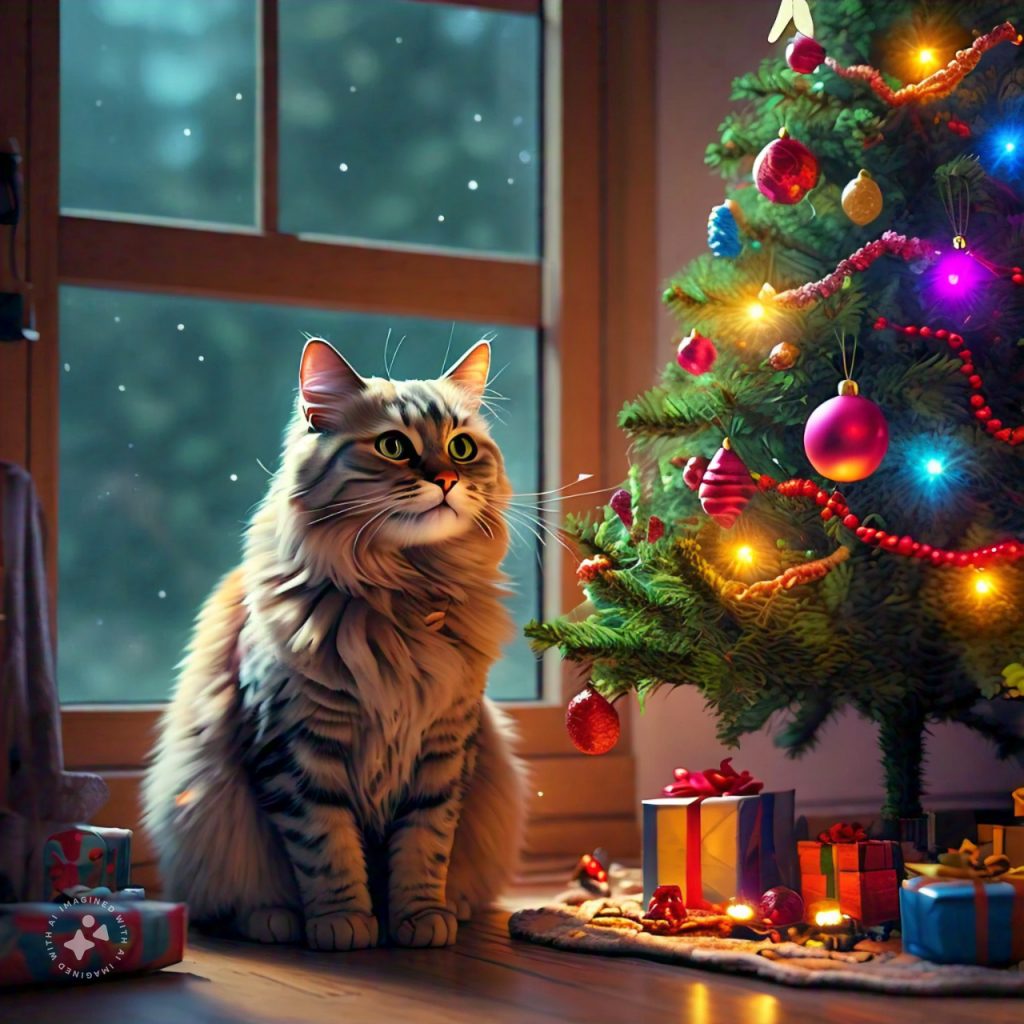For many households, Christmas trees are a quintessential part of holiday festivities. However, for pet owners, particularly cat lovers, the festive season comes with concerns about the safety of these decorative wonders. One of the most pressing questions is: Are Christmas trees toxic to cats? Let’s dive deep into the topic, covering types of trees, potential hazards, and how to keep your feline friends safe.
Are Christmas Trees Toxic to Cats?
The short answer is: it depends on the type of tree. While some trees pose minimal toxicity risks, others can be harmful if ingested by cats. Additionally, the tree itself isn’t the only concern—decorations, water, and other associated materials can also present hazards.
1. Types of Christmas Trees and Their Effects on Cats
a. Real Christmas Trees
Real Christmas trees are usually pine, fir, or spruce. Here’s how these common varieties might affect your cat:
- Pine Trees: Some pine species contain oils that can irritate your cat’s mouth and stomach if ingested. Symptoms include drooling, vomiting, and diarrhea. Scots pine and white pine are generally less toxic than others but still pose some risk.
- Fir Trees: Fir trees, like balsam or Douglas fir, contain sap that can irritate your cat’s digestive system. While not highly toxic, ingestion can lead to gastrointestinal discomfort.
- Spruce Trees: Spruce trees are less toxic than pine and fir but can still cause mild stomach upset if consumed.
b. Artificial Christmas Trees
Artificial trees are not inherently toxic, but they come with their own set of risks. Cats chewing on plastic branches or metal components can suffer from:
- Choking hazards
- Intestinal blockages
- Cuts in their mouth or stomach from sharp materials
2. Other Hazards Associated with Christmas Trees
a. Christmas Tree Water
Tree water often contains preservatives, pesticides, or fertilizers to keep the tree fresh longer. These chemicals are harmful if your cat drinks the water. Even without additives, stagnant water can harbor bacteria that cause stomach upset.
b. Decorations
- Tinsel and Ribbons: Cats are attracted to shiny, string-like objects, which can be swallowed. Ingestion may lead to severe complications like intestinal blockages.
- Ornaments: Glass or ceramic ornaments can shatter, causing injuries if your cat tries to play with or chew on them.
- Lights and Cords: Chewing on electrical cords can cause burns, shocks, or even fires.
c. Tree Needles
Both real and artificial needles can cause problems if eaten. Tree needles are sharp and indigestible, leading to internal damage or blockages.
Signs Your Cat May Be in Trouble
It’s crucial to monitor your cat during the holiday season for any unusual behavior. Common signs of poisoning or injury include:
- Vomiting or diarrhea
- Excessive drooling
- Lethargy or lack of appetite
- Difficulty breathing
- Pawing at the mouth or showing discomfort after chewing
If you notice any of these symptoms, contact your veterinarian immediately.
Tips to Keep Your Cat Safe Around Christmas Trees
1. Secure the Tree
Anchor the tree to the wall or ceiling to prevent tipping over if your cat decides to climb it.
2. Create a Barrier
Use a tree skirt to cover the water basin and consider setting up baby gates or other barriers around the tree to limit access.
3. Choose Cat-Safe Decorations
Avoid using tinsel, small ornaments, or edible decorations. Opt for shatterproof ornaments and hang them higher up on the tree.
4. Avoid Chemical Additives
If you use a real tree, skip the preservatives in the water to minimize risks.
5. Distract Your Cat
Provide alternative sources of entertainment, like scratching posts or interactive toys, to keep your cat away from the tree.
6. Use Repellents
Spraying the tree with a pet-safe citrus scent can deter cats, as they typically dislike citrus smells.
Alternatives to Traditional Christmas Trees
If your cat is particularly mischievous or prone to chewing, consider these alternatives:
- Wall-Mounted Trees: These flat trees can be hung on a wall, keeping them out of reach.
- Tabletop Trees: Smaller trees placed on elevated surfaces are less accessible to cats.
- Cat-Safe Trees: Opt for cat-safe faux trees made of non-toxic materials and avoid decorating them with hazardous items.
Conclusion
While Christmas trees can pose potential risks to cats, understanding the dangers and taking precautions can help you create a safe and festive environment for both your family and your feline friends. By selecting the right tree, securing it properly, and choosing pet-safe decorations, you can enjoy the holidays worry-free.
Remember, if you suspect your cat has ingested something harmful or is showing signs of distress, seek veterinary care immediately.
With a little preparation, you and your furry companions can have a merry and safe Christmas!

